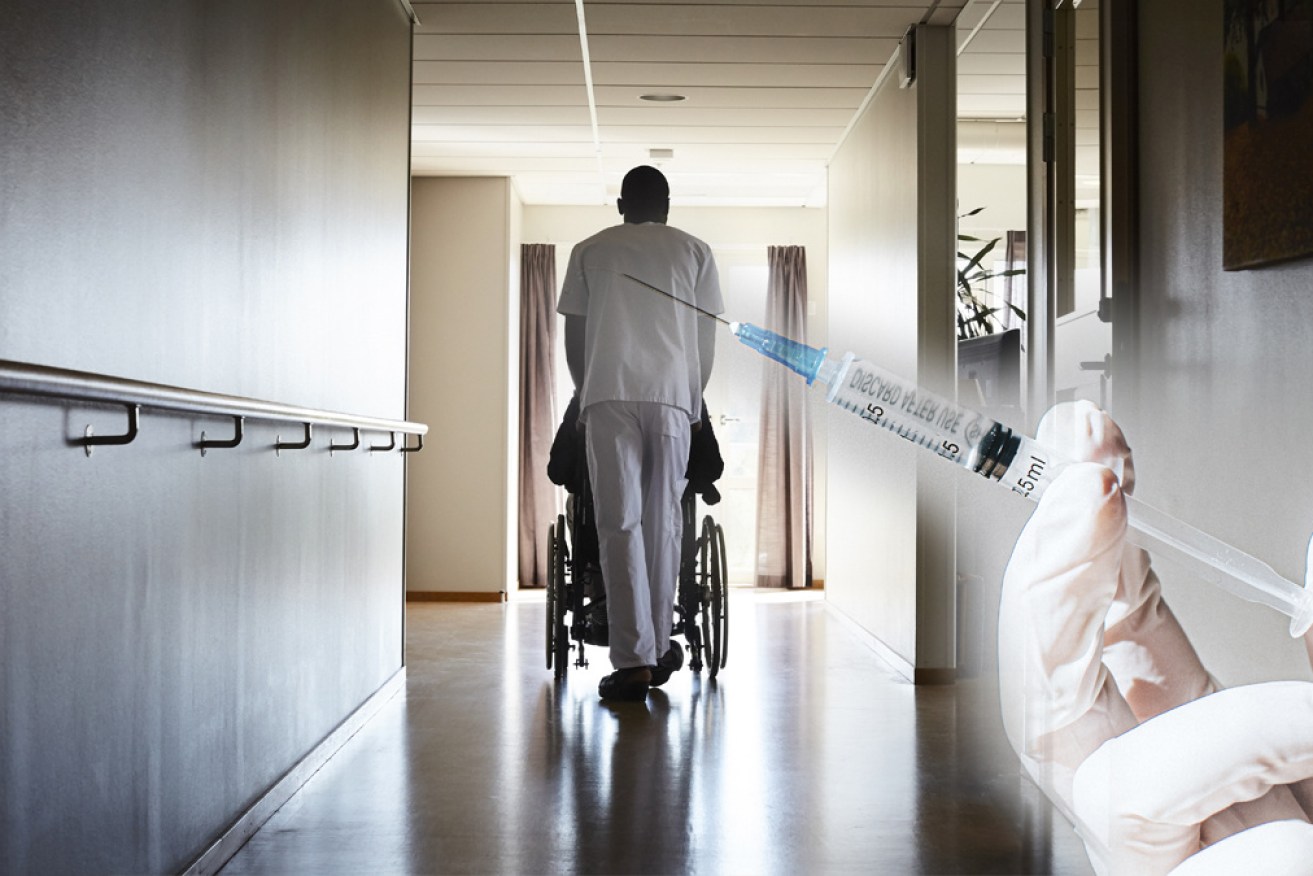Federal Health Department tells aged-care workers they can keep their vax status secret

Aged-care workers aren't obliged to reveal if they have been inoculated, the Health department hyas ruled. Photo: Getty/TND
Aged-care workers do not need to disclose whether they have been vaccinated against COVID under new guidelines released by the Department of Health.
An executive update from the department on Friday told the aged-care industry: “It is voluntary for workers to be vaccinated and to disclose if they have received a COVID-19 vaccination.”
The update also said: “Workers should not be required to provide evidence to confirm their vaccination status.”
The department directive conflicts with the government’s recent promise to find out the true numbers of aged-care workers vaccinated by making it mandatory from June 15 for providers to make weekly reports.
The directive means the data would be invalid if workers choose not to disclose it, or if they wrongly claim to be vaccinated without providing any proof.
In a section resembling a Frequently Asked Question (FAQ) page, the document from the Department of Health said giving your vaccination history would not be compulsory.
“It is your choice. Your employer will discuss with you how they will record your COVID-19 vaccination, if you are willing to share this information with them,” the document said.
“Providers should ensure workers do not feel coerced or compelled to disclose information.”
It is believed only about 10 per cent of workers are inoculated against COVID-19.
Ministerial silence
The ABC has contacted the ministers responsible for aged care, Greg Hunt and Richard Colbeck, for comment but neither has responded.
This latest revelation comes after it was revealed last week the federal government abandoned its plan to vaccinate staff at their workplace along with elderly residents.
Staff who were on site at the time could be vaccinated with “leftover” doses.
Aged-care workers — who were classed in the top risk group along with health and quarantine workers — were left to find their own vaccines by joining the same queue as the general public.
Victoria, NSW, South Australia and Queensland have stepped up by giving aged-care workers priority access at state-run vaccination clinics despite the sector being regulated by the Commonwealth.
The federal government gave multimillion-dollar contracts to four private companies — Aspen Medical, Healthcare Australia, International SOS and Sonic Clinical Services — instead of employing the states to do the rollout, which is the method used to administer the flu vaccine.
Unions and providers have been united in their outrage at how workers have been treated in the rollout. Both have said private contractors should return to workplaces to vaccinate staff that would provide a proper record for employers.
Chief executive of aged-care provider Warrigal, Mark Sewell, said the controversy has led to a decline in staff wanting the vaccine and has not solved the problem for regional areas where access is even more difficult.
‘Conflicted agenda’
“Most aged-care staff — over 80 or 90 per cent — were keen in February and March when they were told they’d get it with residents,” he said.
“The government would have had their names and dates in their vaccination records so the data wouldn’t have been a problem.
“Because this confusion has been going on for a few months, our internal survey shows support has dropped to 63 per cent because people have been reading about side effects, it’s been complicated to register and even to get to a venue.
“About 40 per cent of our workers are migrants who have to use public transport.”
Mr Sewell said he supports sending the contracted companies back to vaccinate the staff.
“This isn’t a few people,” he said. “These are big teams of 100 staff – mainly women who work part time – and all the reasons why the residents were done as a priority apply to all the staff.”
Gerard Hayes, from the Health Services Union which represents aged-care workers, said the new direction shows the government’s “conflicted agenda” by wanting mandatory vaccinations but making reporting voluntary.
“There is also the vaccine supply issue and the ability for workers to attend a GP or vaccination hub,” he said.
“We have already had members who were booked in to be vaccinated and they were required to be at work, so they cancelled the vaccination.”
Asked to review ruling
On Friday, the national cabinet rejected a proposal to make it mandatory for aged-care workers to be vaccinated.
However, the Prime Minister has requested the Australian Health Protection Principal Committee (AHPPC) reconsider whether to make it compulsory.
Chief Medical Officer Paul Kelly said there was a concern that making it mandatory could result in people quitting their jobs.
Professor Kelly said having the data on whether people are being vaccinated will decide whether to make it mandatory.
“If that extra thing [mandatory vaccines] is needed, we will definitely go to that point,” he said.
However, the pace of the rollout has led to frustration among nurses according to Anne Butler, secretary of the Australian Nurses and Midwifery Federation.
She said workers want to be vaccinated but they have not had access to the shots because the government reneged on its promise.
“They keep band-aiding and patching it up and making it someone else’s fault – now they’re trying to change the health advice instead of what they promised to do which was make the vaccine available at the workplace,” Ms Butler said.
“First of all they didn’t have the supply, then they say they couldn’t afford for staff to get sick so they wouldn’t vaccinate them at work.”
–ABC








